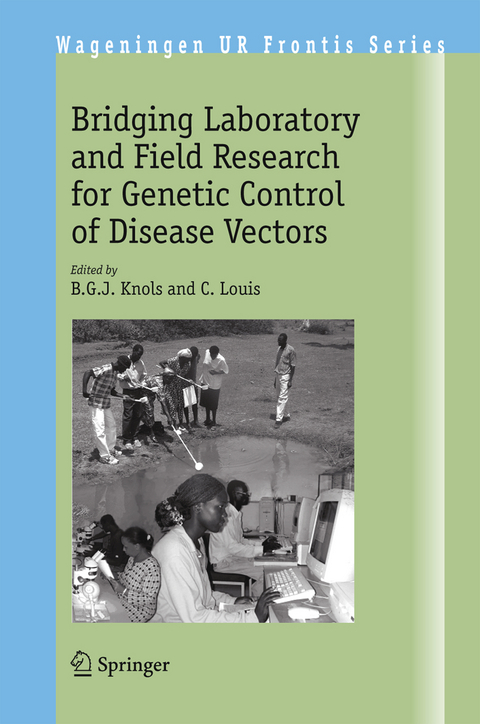
Bridging Laboratory and Field Research for Genetic Control of Disease Vectors
Springer-Verlag New York Inc.
978-1-4020-3799-3 (ISBN)
This book is the reflection of a workshop, held in Nairobi (Kenya) in July 2004. It brought together a good representation of both molecular and ecological research and, for the first time, included a significant number of researchers from disease-endemic countries.
Lessons learnt and anticipated benefits.- Executive summary.- Report of the working-group meeting.- Review of previous applications of genetics to vector control.- Genomics and expected benefits for vector entomology.- Current state and future needs of laboratory and field science.- Genetic approaches for malaria control.- Current thoughts about the integration of field and laboratory sciences in genetic control of disease vectors.- Genetic approaches in Aedes aegypti for control of dengue: an overview.- Regional situation reports: malaria and dengue.- Malaria and dengue vector biology and control in West and Central Africa.- Malaria and dengue vector biology and control in Southern and Eastern Africa.- Malaria and dengue vector biology and control in Southeast Asia.- Malaria and dengue vector biology and control in Latin America.- Integration.- Transition from the laboratory to the field and effective interplay.- Evaluation of drive mechanisms (including transgenes and drivers) in different environmental conditions and genetic backgrounds.- Tools for monitoring the genetic structure and stability of mosquito populations.- What are relevant assays for refractoriness?.- Fitness studies: developing a consensus methodology.- Mosquito mating behaviour.- Pathogen evolution issues in genetically modified mosquito vector strategies.- Models to investigate some issues regarding the feasibility of driving refractoriness genes into mosquito vector populations.- Identification and characterization of field sites for genetic control of disease vectors.- Application of genetically modified mosquitoes in national vector control programmes: thoughts on integrated control.- Entomological correlates of epidemiological impacts: how do we know it is working?.- Ethical, legal and social issues in the use of genetically modified vectors for disease control.
| Reihe/Serie | Wageningen UR Frontis Series ; 11 |
|---|---|
| Zusatzinfo | X, 229 p. |
| Verlagsort | New York, NY |
| Sprache | englisch |
| Maße | 156 x 234 mm |
| Themenwelt | Studium ► Querschnittsbereiche ► Epidemiologie / Med. Biometrie |
| Naturwissenschaften ► Biologie ► Allgemeines / Lexika | |
| Naturwissenschaften ► Biologie ► Genetik / Molekularbiologie | |
| Naturwissenschaften ► Biologie ► Zoologie | |
| ISBN-10 | 1-4020-3799-6 / 1402037996 |
| ISBN-13 | 978-1-4020-3799-3 / 9781402037993 |
| Zustand | Neuware |
| Informationen gemäß Produktsicherheitsverordnung (GPSR) | |
| Haben Sie eine Frage zum Produkt? |
aus dem Bereich


